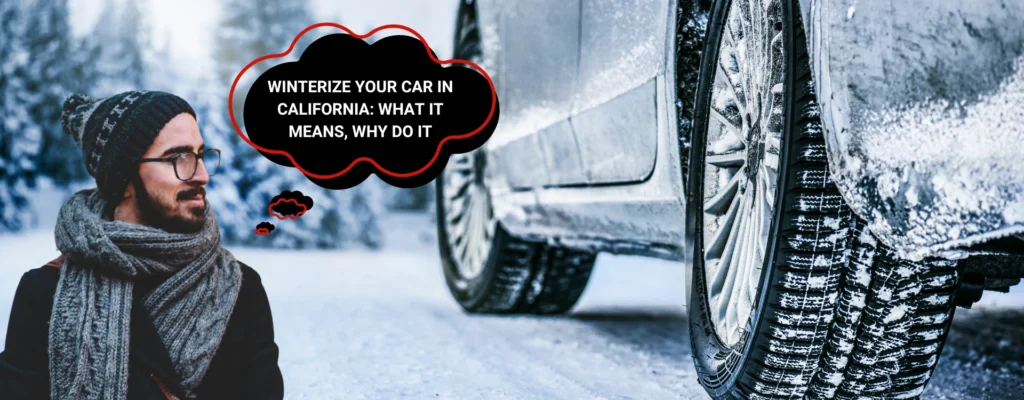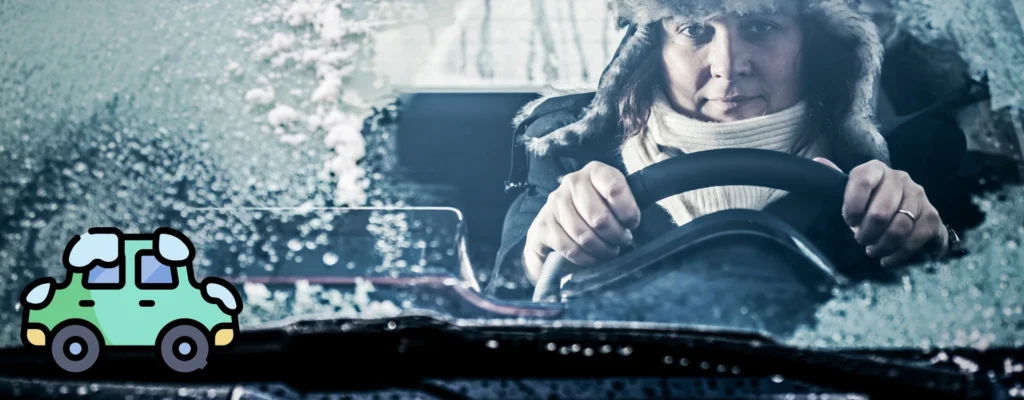
Winterize your car by preparing it to withstand the harsh conditions of cold weather. This involves checking key systems and parts to make sure your car operates safely during the colder months, preventing breakdowns and costly repairs. Properly preparing your car for winter is necessary to improve its performance, reliability, and safety on the road.
IN NEED OF A POST- ACCIDENT CAR REPAIR?
Why It’s Important to Winterize Your Car
Cold temperatures put extra strain on your vehicle. As temperatures drop, fluids like coolant, wiper fluid, and engine oil can thicken, making it more difficult for your machine to start and run properly. If you do not get your car ready, it may experience performance issues, leading to breakdowns and expensive repairs.
Winter weather also impacts various parts of your vehicle. For example, low temperatures cause tires to lose pressure, which reduces traction and increases the chance of accidents on icy or wet roads. Proper tire maintenance, such as switching to snow tires, helps improve grip and handling in slippery surfaces.
Another important factor is your car’s battery. Cold weather drains battery power more quickly, and older ones are more likely to fail during winter. Checking or replacing the battery as part of the process can prevent sudden power loss, keeping you on the road without interruption.
Poor visibility is also a common problem, with snow, rain, or fog reducing your ability to see clearly. Replacing worn-out windshield wiper blades and keeping your washer fluid topped up helps maintain clear visibility, reducing the chance of accidents caused by obstructed vision.
By winterizing your car, you’re not just keeping your vehicle running — you’re making sure you stay safe and prepared for driving. Proper maintenance helps your car perform better, reduces the chance of costly repairs, and helps you rely on your vehicle when you need it most.
How Cold Weather Affects Your Car
Cold weather can cause several issues, especially with performance. Engine oil becomes thicker in low temperatures. This can lead to extra wear on the engine parts. Tire pressure also drops when it’s cold, as mentioned earlier. Without the right pressure, your tires can wear out faster and make driving on icy roads more dangerous. In addition, cold weather slows down your battery’s ability to generate power, which can cause it to fail in critical moments.
Preparing your car for winter helps avoid these problems. By checking your oil, maintaining tire pressure, and inspecting the car battery, you can reduce the chances of facing unexpected issues. These simple steps help keep your car handling smoothly in winter driving.
Steps to Winterize Your Car
To prepare your car for winter, follow these important steps:
- Check your battery health. Test this to make sure it’s still strong. Cold weather can drain battery power, so replace it if it’s not holding a charge.
- Replace wiper blades. Old wiper blades can cause poor visibility during winter storms. Install new blades to keep your windshield clear in rain, snow, and ice.
- Inspect your tires and replace them if necessary. Check your tire pressure and tread. Winter tires are a good option for better grip on slippery roads, so make sure they are in good condition.
- Flush the cooling system and replace antifreeze. Flush your cooling system and replace old antifreeze to prevent the engine from freezing in cold temperatures.
- Test the heating system. Make sure your heating system is working well so you can stay warm and keep your windshield clear.
Signs Your Car Needs Winterizing

Before the first snow falls, check for signs that your vehicle may need attention. Difficulty starting your vehicle, especially in the morning, can indicate issues with the battery or fuel system, which are often worsened by colder temperatures.
Dim headlights or flickering dashboard lights may suggest that your car’s electrical system is struggling, a problem that could become more pronounced as the weather cools. If you notice that your car is having trouble maintaining speed or the tires seem to lose grip more easily, this could point to worn-out tires or incorrect tire pressure.
Preparing your car for winter involves addressing these warning signs before they worsen. Regular maintenance, such as testing the battery, inspecting the electrical system, assessing the flexibility of belts and hoses, and checking your tires, can prevent these issues from developing further.
Common Mistakes to Avoid
Winterize your car to avoid issues that can arise during the colder months. Be aware of these common mistakes:
- Delaying Winterization. Waiting until the cold weather arrives can lead to expensive repairs and unsafe driving conditions.
- Ignoring Tire Pressure. Not checking tire pressure regularly can affect handling and increase the risk of damage.
- Neglecting the Battery. A weak battery is more likely to fail in cold weather, leaving you stranded.
- Forgetting Brake Fluid. Low brake fluid levels can impair braking performance, which is especially dangerous on icy roads.
- Skipping Air Filter Replacement. A dirty air filter can reduce engine efficiency, causing poor performance during cold seasons.
Get Expert Assistance in Wintering Your Vehicle. Be Ready for the Holidays with a Collision Connect-approved Auto Body Shop in California.
To winterize your car properly, reach out to Collision Connect. Our network of trusted auto repair shops connects you with top professionals who can ensure your vehicle is fully prepared for the cold weather. Get expert assistance today!
IN NEED OF A POST- ACCIDENT CAR REPAIR?